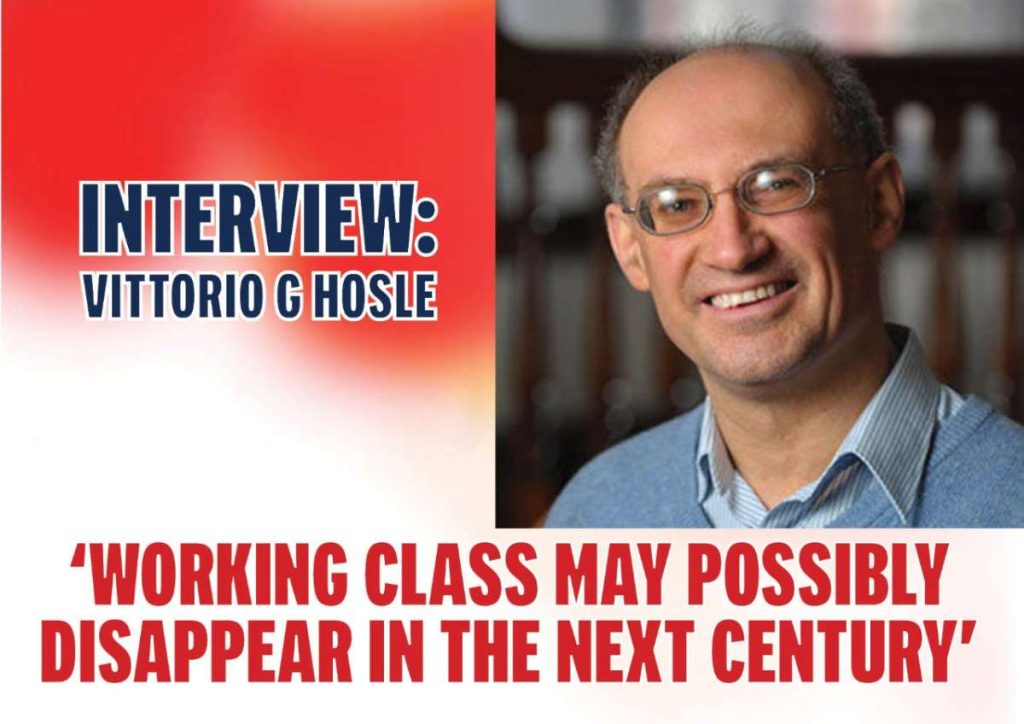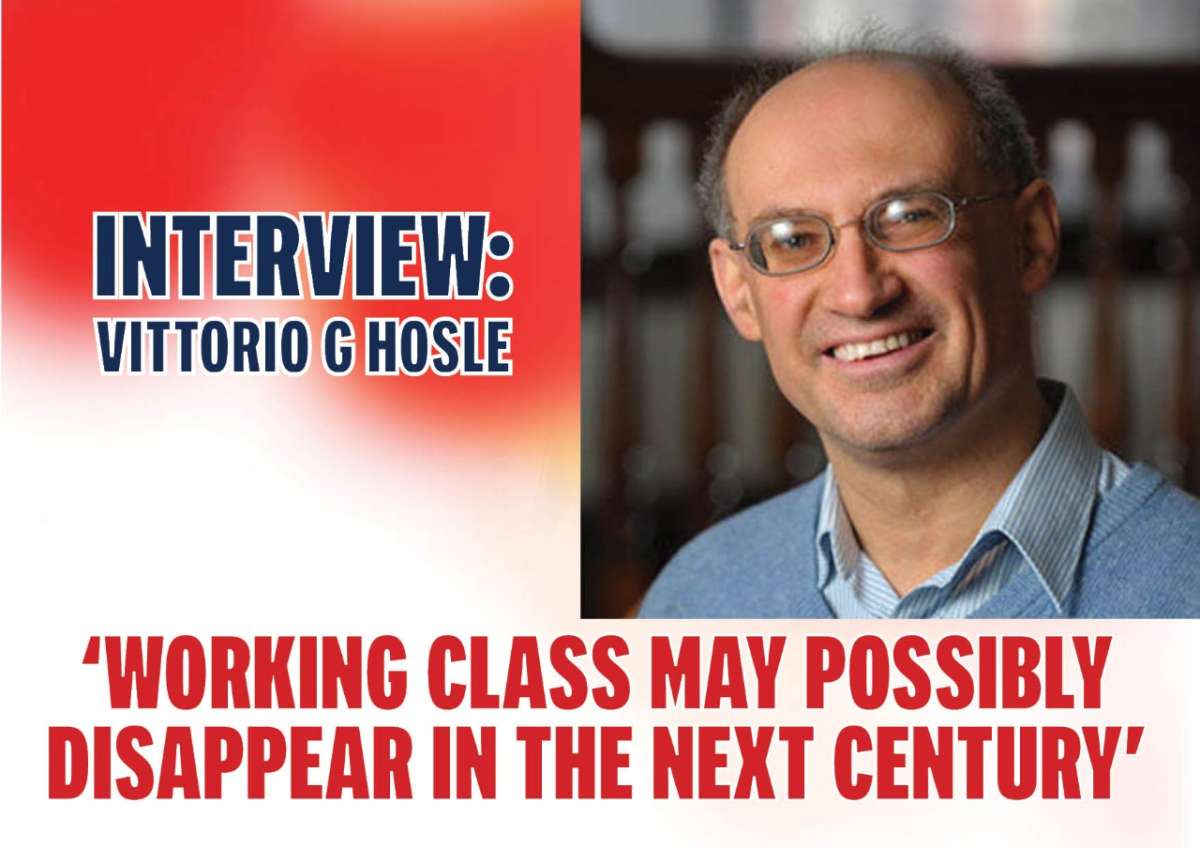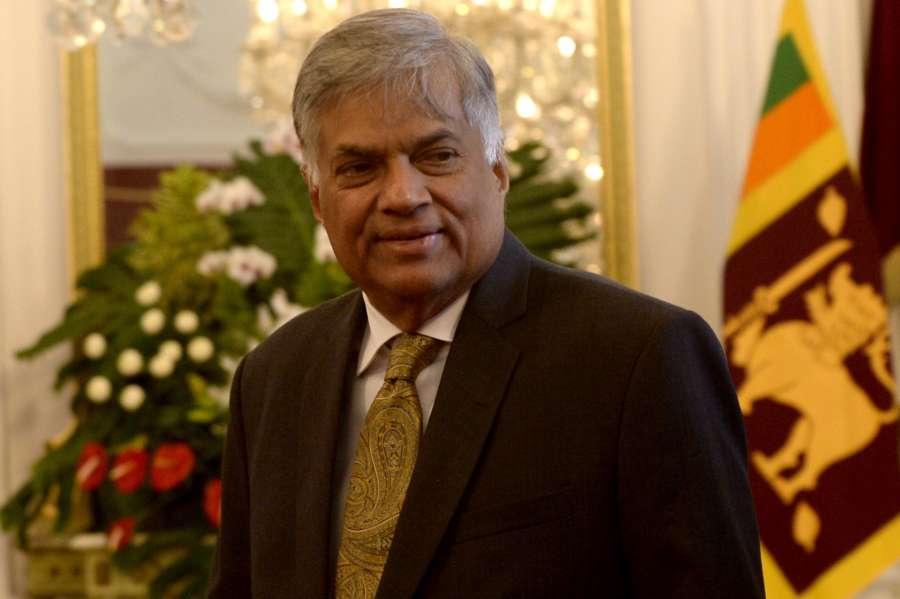Working class may possibly disappear in the next century, Vittorio G Hosle tells Asian Lite’s Abhish K Bose
Vittorio G. Hösle is the Paul Kimball Professor of Arts and Letters, Department of German and Russian Languages and Literature, Concurrent Professor of Philosophy and of Political Science at the University of Notre Dame. His scholarly interests are in the areas of systematic philosophy (metaphysics, ethics, aesthetics, and political theory) and the history of philosophy (mainly ancient and modern). He has written or edited around 40 books and published around 180 articles. His books have appeared in 20 languages. Among his other prizes and awards, he received the Fritz-Winter Prize of the Bavarian Academy of Sciences and has had visiting professorships in many countries, including India, and fellowships at various institutions, such as the Institute for Advanced Study in Princeton. His works in English include Objective Idealism, Ethics, and Politics (1998), Morals and Politics (2004), Woody Allen: An Essay on the Nature of the Comical (2007), The Philosophical Dialogue (2012), God and Reason (2013), Eric Rohmer: Filmmaker and Philosopher (2016). Professor Hösle is also the editor of The Many Faces of Beauty (2013), Dimensions of Goodness (2013), and Forms of Truth and the Unity of Knowledge (2014), which arose from the first three conferences at the Notre Dame Institute for Advanced Study, which he founded. His most widely published work (translated into fifteen languages) is The Dead Philosopher’s Café (2000), an exchange of philosophical letters with a young girl. A recent book, which appeared only in German, deals with the “Centrifugal forces” that threaten modernity. In an extensive interview with Abhish K. Bose Hosle discusses a wide range of issues including the Russia – Ukraine war, the connection between Hindutva nationalism and the Aryan supremacy theory of Adolf Hitler, and the dangers of postmodernism, philosophy and religion.
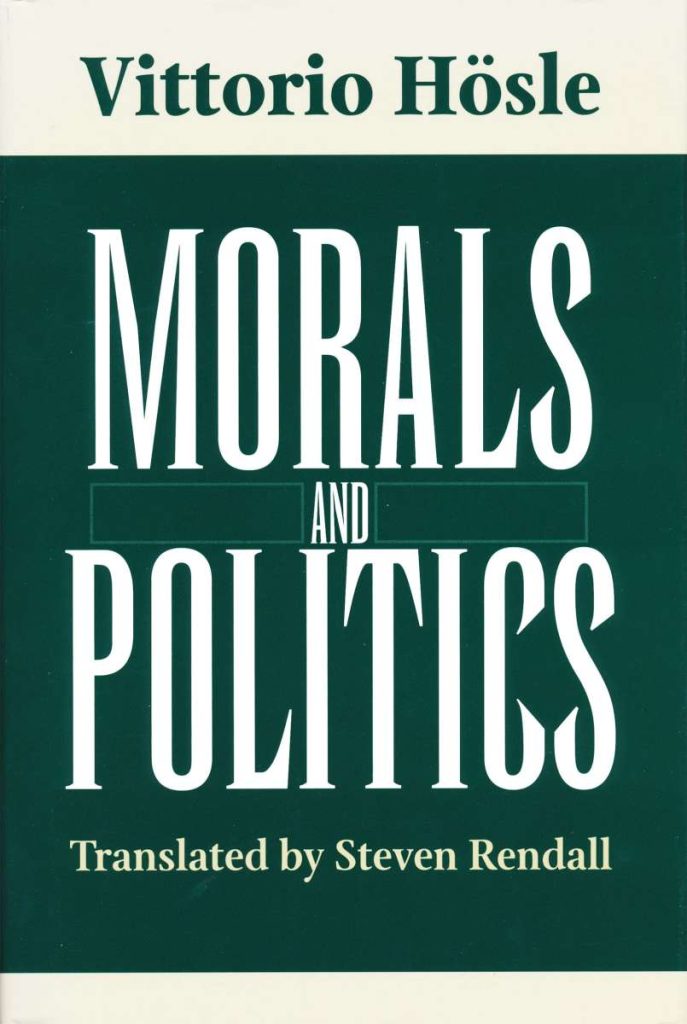
ABHISH K BOSE: You have authored a book ‘ Politics and Morals’. Is not politics governed by exigencies and pragmatism as in realpolitik? Do you think at any juncture in human history morality existed as a practicable virtue in politics?
VITTORIO G HOSLE: In fact, my book has the title “Morals and Politics” – for I do believe in the conceptual priority of morals, which in my eyes is irreducible to social facts. These have their own logic, and my book tries to understand and grasp that too. But if the Ought and the Is have different origins, how can they interact? I interpret history as the slow process of adaptation of the political reality to the moral ideal, partly through the evolution of law. To give two obvious examples: Slavery nowadays is abolished, at least in the legal systems, almost everywhere; and women have achieved legal equality with men in an increasing number of countries. I am enough of a realist, however, to recognize that usually moral progress can be institutionalized only because there are also factual interests pointing in that direction or at least a temporary decline of countervailing interests. It was easier for William Wilberforce to get the slave trade abolished in the British colonies because Napoleon’s continental blockade had made it already temporarily obsolete; and Lincoln needed the support of Northern industrialists, who were eager to have more labor from the South. Economic and moral motives are often mixed.
ABHISH K BOSE: Across the world, there are reports of the emerging right-wing movements gaining momentum and capturing power. Does this portend a moral decadence in politics? Please explain your view on the growth of right-wing politics globally.
VITTORIO G HOSLE: We are doubtless witnessing a general decline of universalist values and ideals, like in the time of the rise of fascism in the 1920s and 1930s. I regret and condemn this development but try also to explain it. Globalization has led to enormous economic growth and even decreased global inequality – but at the price of an increase in inequality within many countries, both in the developing and the developed world. This has led to resentment against those who benefit from globalization by those who do not do so. Trump’s supporters in the USA are the historical losers from globalization, the formerly relatively affluent worker class that is furthermore threatened by automatization. And indeed the worker class, in which Marx saw the diving force of progress, will probably disappear in the next century.
ABHISH K BOSE: According to you, globalisation has aggravated inequalities within nations. You also envisage that the working class would cease to matter by the next century. Could you elaborate a little more on the future ramifications of this trend?
VITTORIO G HOSLE: Certainly the Industrial Revolution was one of the greatest events in human history – one has argued that in importance it is only comparable to the Neolithic Revolution that created agriculture as an alternative to the life form of the hunters and gatherers. Not only economic growth increased exponentially; it deeply changed almost everything in interhuman relations, from the family to religion. The importance of Karl Marx consisted in recognizing, as a sociologist and as an economist, the watershed that the Industrial Revolution signified for humankind. At the same time, Marx was outraged at what he perceived as an exploitation of the class that was driving these changes – the workers, who were not getting their fair share of the new wealth. He tended therefore to ascribe to them an exceptional status in world history.
But while this was true for the 19th and 20th centuries, it is no longer the case. From a more objective point of view, we have to recognize that the Industrial Revolution had in itself the germ of the abolition of the workers. Modern technology does not simply produce consumer goods; it can also be used to produce the engines that produce consumer goods. Through automatization, rendered possible by modern computers, physical labour becomes less and less necessary. The worker class will thus last much less in history than the farmer class. Of course, the primary sector decreases everywhere, and also here industrialization changed the nature of the work. But I do not believe that dealing with animals can be completely delegated to machines – unlike the creation of engines. Therefore we will always have farmers but workers will be more and more replaced by engineers.
The decline of the worker class, which was proud of its physical strength and therefore upheld the traditional appreciation of virility, has consequences also for gender relations. The new services the demand for which will outlive the automatization often presuppose empathy – think of doctors, nurses, and educators. Women are particularly good at that; and thus in the near future, at least in industrialized countries, there will be much more male than female unemployment. In the USA for two men who get a college degree, there are three women – and college degrees are crucial for your economic success. The wrath that this engenders in uneducated men can lead to horrific explosions of violence – either sexual (think of the rape rate in India) or political (think of the mob that stormed the Capitol on 1/6/2021).
The turning of the workers to the right proved to be a serious challenge for Marxists – for the class most cherished by them has voted predominantly for Trump in the USA. And of course, also the Marxist belief in progress has eroded. Given the enormous dangers of the world in which we live it is realistic to assume that the 21st century will work out worse than the 20th. It is difficult to be optimistic in the short term – let us hope that we can be optimists for the 23rd century!
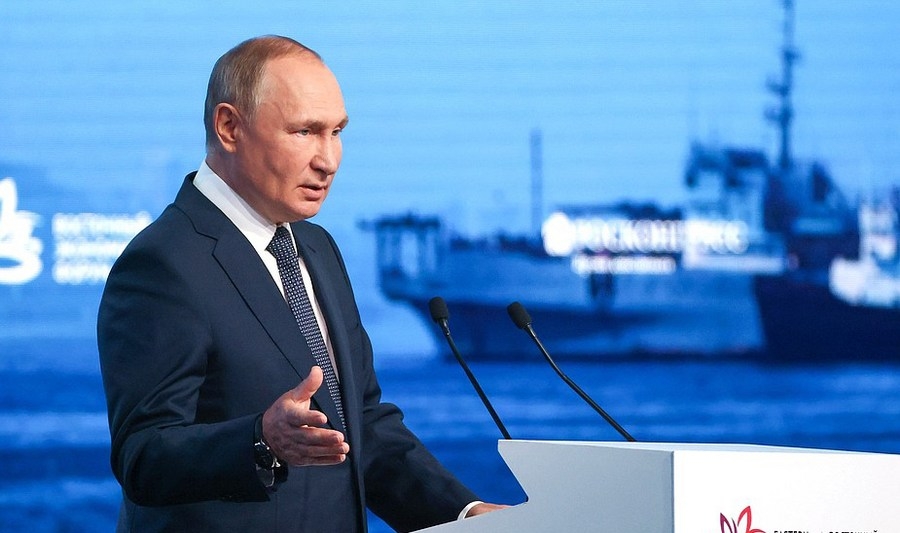
ABHISH K BOSE: The Russian military invasion of Ukraine is a blatant violation of international treaties and the sovereignty of one country over the other. However, Russia justifies this step on the basis of its security concerns, aggravated by Ukraine’s eagerness to join NATO. In India, measures initiated by the Union government, which cannot be defended in any other way, are justified by invoking the fetish of national security. What, in your opinion, should be the balance between international principles/guarantees and national security on the one hand and constitutionally guaranteed fundamental rights and national security, on the other? Doesn’t the indiscriminate invocation of the national security alibi resurrect the old dictum, ‘might is right’?
VITTORIO G HOSLE: There is no doubt that the Russian war against Ukraine is the most shameless war of aggression in Europe since the end of WW II. There is not a shadow of a justification for it, either legally or morally. It is the security of Ukraine that is now being destroyed by Russia; Russia’s security was never at stake. Putin did not fear NATO; he feared that the success of a functioning democracy in an East Slavic country could destroy the legitimacy of his own dictatorship. Therefore, he invaded Ukraine.
Concerning internal policies, national security can indeed be abused to justify the violation of fundamental rights. However, most rights are not absolute; they have to be considered as a whole. Only a concrete analysis can determine whether limitations, say, of the right to property are necessary to maintain public security, for which the state is indeed responsible.
ABHISH K BOSE: Do you think the Russian invasion of Ukraine will encourage other dominant countries to deal with their neighbouring countries in a like manner; for example, China vis a vis Taiwan and India in relation to Pakistan occupied part of Kashmir (PoK), given the reluctance of the US and Europe to get involved militarily in such situations?
VITTORIO G HOSLE: Clearly, the risk is there. People like to follow bad examples. And of course, China would not regard the invasion of Taiwan as the invasion of a foreign country but only as the retrieval of the national territory. In fact, the majority of states do not recognize Taiwan as an independent country. Whether this will happen or not will also depend on the outcome of the Russian invasion. If it is not successful or if it proves very costly while being at least partially successful at the end, this will have a deterrent effect on other potential aggressors. And that is the reason why the West should support Ukraine with weapons so that it can defend itself and deter further aggressors.
ABHISH K BOSE: The world can no longer afford or accept all-put wars. How can wars be avoided? Or are wars a necessary element on international politics? Can wars be avoided so long as the psychological craving for violence, as Pope Francis said, remains deeply embedded in human nature, ensuring that leaders who unleash death and destruction on putative enemies become hugely popular? Do you envisage the emergence of a political culture in which waging war and war-mongering become politically costly?
VITTORIO G HOSLE: Wars, alas, is rooted in both human aggressiveness and the – in-principle legitimate – desire for security. But we have achieved very important legal progress with the Kellogg-Briand pact and the Charta of the UN – international law has now outlawed wars of aggression. Still, states have not always respected the new principle, the USA included. Yet the almost universal condemnation of the Russian aggression in the Uniting for Peace resolution of the General Assembly is a sign that at least in theory there has been progressing.
True enough, demagogues and dictators can incite even today the populace to support wars. Usually, catastrophic defeats prove to be a lesson – as it happened in my own country of origin, Germany. International criminal law is a further mechanism to uphold the rejection of war-mongering.
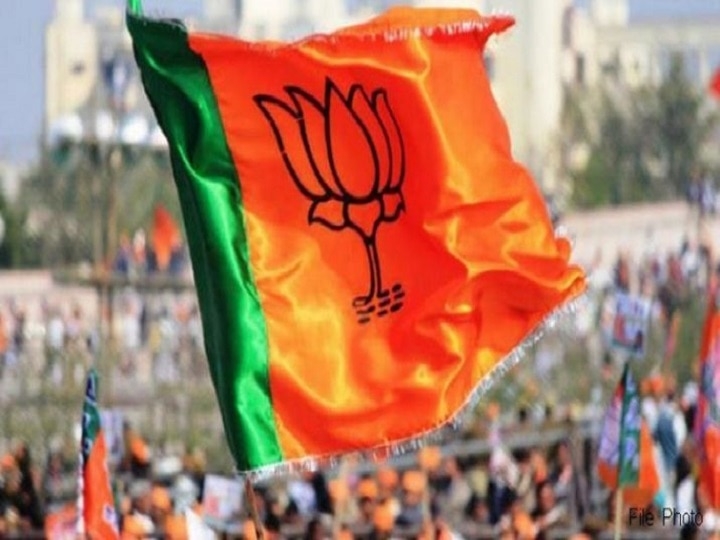
ABHISH K BOSE: In India, the proponents of the Hindu Rashtra, as against the liberal-secular democracy that India is envisaged to be, are busy propagating a political culture of violence, the suppression of dissent and the discrediting of unity-in-diversity as our national hallmark. This ideological block is also committed to Akhanda Bharath, which includes territories currently held by Pakistan, Afghanistan, Myanmar, Tibet, Bangladesh and Sri Lanka. There are many in India who believe, like Ukraine in relation to Putin, that Pakistan has no right to exist as a separate nation. India is also investing excessively in increasing the firepower of its armed forces. Do you envisage India slipping into the Russian frame of mind; especially given that New Delhi is showing evident affinity to that country under Putin?
VITTORIO G HOSLE: Even if I had the honour to spend four months in 1992 in India, I do not claim any special knowledge of your country. But generally, we have to be very fearful of all political movements that even suggest changing borders between countries – this can only lead to wars. Akhand Bharat is therefore a very dangerous doctrine (even more so as India and Pakistan are both nuclear powers). Alas, history teaches us that when a country begins with wars of expansion, other powers feel motivated to follow suit – they believe that the right moment has come and do not want to be left behind in the conquest of territory.
India’s cooperation with Russia has old historical reasons, but given the fact that India takes great pride in being the most populous democracy in the world, I would hope that the country joins the other democracies in supporting the sanctions against a dictatorship that has invaded a peaceful democracy.
ABHISH K BOSE: As an academic who is primarily based in Europe and North America how do you perceive contemporary Indian society and polity? What is the western intelligentsia’s assessment of India’s transition from a secular country to a Hindu theocratic State? Why is the Euro-American bloc turning a blind eye to the evident signs of democratic disarray in India? Does it signify the ascendancy of economics over politics, liberal democracy and human rights? In particular, are we watching the slow, but sure, the decline of America as a global force?
VITTORIO G HOSLE: I am indeed worried about India’s development and agree with your description that the Euro-American bloc is turning a blind eye to dangerous developments in India. They did it even more in the case of Russia! And I am afraid that you are right that often economic interests are motivating this negligence.
Liberal democracy was based on a noble ideal, the respect of the person. This has rendered the evolution of stable capitalism possible. But many of the moral and spiritual foundations of liberalism have eroded, and greed is the main thing that has survived. That cannot end well; already the Roman historian Sallustius has the Northern African prince Jugurtha call Rome a venal city soon to perish if it only finds a buyer.
Germany, for example, got into enormous dependency on Russia because of its energy imports and is thus hampered in its reaction to Russia – economic interests have paralyzed the political decisions.
The USA is in trouble but I think that the weakness of Europe is much more pronounced.
ABHISH K BOSE: A large number of Indians are migrating to European countries in search of a quality of life and better career opportunities. In the meanwhile, there are indications that allergy to large-scale Afro-Asian immigration which is feared to have significant implications for domestic politics is also increasing. How do you evaluate this scenario?
VITTORIO G HOSLE: No country can pursue a policy of completely open borders. Where the limits have to be drawn depends on many factors, such as the number and education of the prospective migrants, the economic strength of the host country, and the compatibility of the migrants with the culture of the country where they want to live.
I am moved by the cordial reception of the Ukrainian refugees in many European countries right now, including Eastern European ones such as Poland, which refused to accept refugees from Syria in 2015. This can be explained by two factors – the greater cultural homogeneity and the awareness that the heroically fighting Ukrainians are not only defending their own freedom but also that of Europe as a whole.
ABHISH K BOSE: Dictators seem to be attaining a new lease of life in many parts of the world. Are people getting disenchanted with liberal-secular democracy? If they are, why? Are secularism and democracy unrealized ideals in the contemporary world?
VITTORIO G HOSLE: Alas, the decline of democracies, at least of full democracies, in the last years is well established. Not only have persons like the Russian or the Chinese president achieved in their authoritarian regimes a power concentration that did not exist for decades (since Stalin’s and Mao’s death respectively); but even traditionally fully democratic countries, such as the USA, have become flawed democracies. Within the EU, Poland and Hungary have gone the ways of illiberal democracies – that is of a rule of the majority that is not respectful of the rights of minorities.
Certainly, it was always very naïve to believe that the progress toward democracies was irresistible and irreversible. The decline has various reasons. The collapse of the mental presuppositions of liberal democracies is crucial – and it has its roots in the radical, postmodern left. If there is no truth, you can manipulate with good conscience, and what remains is brute power.
Another factor is the rise of social media and the collapse of a common public space. People live in their echo chambers and refuse to listen to other arguments; so democracies are irredeemably split, and if they are almost evenly split, the risk of a civil war is high because a defeat can easily be declared to be the result of fraud. Many Republicans in the USA continue to believe this to be the case for the presidential election of 2020.
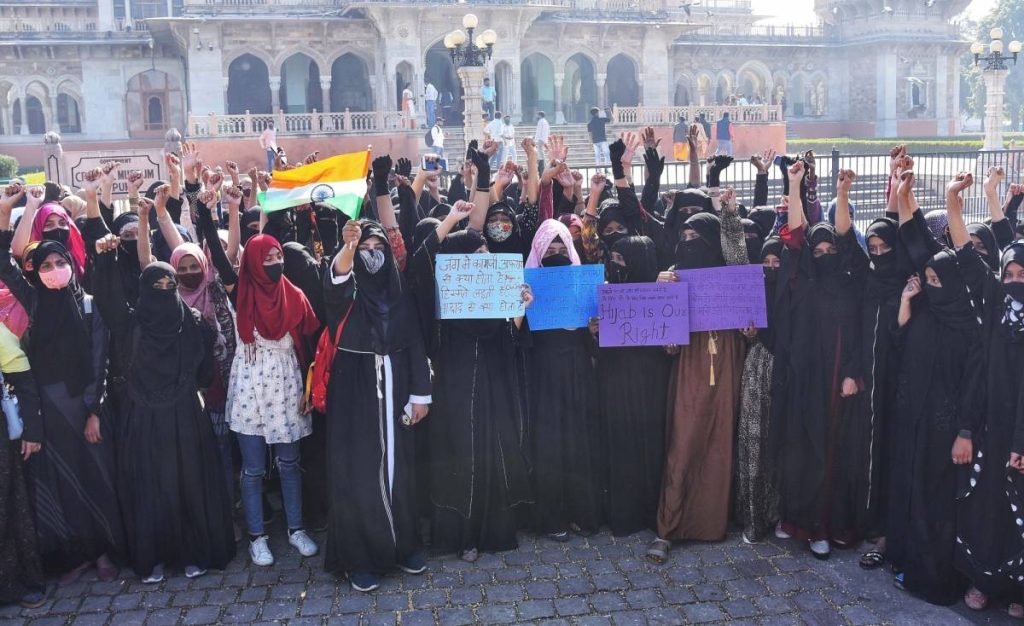
ABHISH K BOSE: You answered that the decline of secularism and democracy has its roots in the radical, postmodern left. Please explain this in detail for the same of your Indian readers.
VITTORIO G HOSLE: Democracy presupposes that we can achieve two things – a common view of reality and, based on it, a common determination of what is the common good. Of course, there will always be differences but at least the goal is to work toward consensus. This was accepted by traditional liberalism, such as espoused, for example, by John Stuart Mill. The postmodernists, however, beginning with Michel Foucault, teach us that there is no objective truth, that it is only a social construct. Norms are perceived to be nothing else than exertions of power. This inevitably leads to cynicism – the only task is to manipulate people to believe certain things, for example by propaganda. If you lie, you don’t have to feel bad conscience – because since there is no truth there is no real lie either.
Radical relativism in modern European philosophy had a staunch supporter in Friedrich Nietzsche. His positions are elusive at best and changed over time but he always belonged to the political right, and his influence on National Socialism is well-known. Relativism was appropriated by the left in the 1960s, often by frustrated Marxists, and has now pervaded the leftist intelligentsia. Some of them still claim some remains of the old emancipatory ideology, for example in critical race and gender theory, but at the same time, they undermine their claims when they tell us that race and gender are only constructs. How can you fight for equality between genders when you think that there is no such thing as gender? Some may claim that there are, alas, social perceptions of genders that have negative consequences. But how can you aver that if at the same time you teach that there is no objective understanding of other people? It is thus not surprising that postmodernism is now used by the right – in a certain sense it returned to its rightful owner and creator if we think of Nietzsche.
ABHISH K BOSE: How should pro-American governments in the rest of the world read (a) The near-abandonment of Ukraine by the US in the wake of the Russian aggression and (b) the disarray in which America withdrew from Afghanistan? Hasn’t the credibility of America taken a severe beating in recent times? How is this going to play out in the growing perception that the geo-political centre of history is shifting to the Asian continent? Can the present Ukraine crisis –taking place at the intersection between Europe and Asia- be an inaugural event of this new drama?
VITTORIO G HOSLE: There is little doubt that Putin is inspired by a Eurasian ideology that sees Russia as the natural leader of Eurasia and wants to conquer the territory of the former Soviet Union and transform the EU into an area dependent on Russia. Since the heroic resistance of the Ukrainians defends not only their own country but Europe as a whole, the EU owes them so much. Still, I think that is would be wrong to join the war and risk a Third World War. Financial and military help must be increased, a direct involvement avoided as long as Russia does not attack NATO territory.
I do not agree that the USA has almost abandoned Ukraine. It would have done so under Trump; it does not do so under Biden, whose help is substantial. But you are certainly right that the ignominious flight from Afghanistan has increased the Russian resolve to attack now. It is furthermore a general sign of the fact that the USA is no longer willing and able to play the world’s policeman. It is too expensive, and it engendered more resentment than gratitude. I predict that people will still come to complain the relatively peaceful time from 1989 to 2014 when the USA had a hegemonic role (which they certainly often abused, most egregiously in the immoral, illegal, and stupid war against Iraq in 2003).
ABHISH K BOSE: You have authored ‘ A short history of German philosophy’. From your philosophical perspective, how do you read the parallel between the Aryan supremacy theory and the cultural nationalism of the Hindutva movement in India? Do you envisage the consolidation of the Hindu Rashtra going the whole way as Hitler’s German nationalism in the last century? In particular, how do you read the move to make citizenship a central issue in Indian politics through the National Registry of Citizens and the Citizenship Amendment Act, both of which are believed to target Muslims and Christians who, according to the Sangh ideology, are not entitled to citizenship in India?
VITTORIO G HOSLE: The deprivation of Muslims and Christians of their citizenship is a monstrous violation of the state’s responsibility to protect all its citizens. And it is indeed reminiscent of the National Socialist denial of citizenship to Jews. Still, India is very far from considering anything like the holocaust. But the analogies between the RSS and fascist organizations are striking, and if the path is continued, worse things will follow. I know too little about the background of contemporary Hindu doctrine, but it seems to have some features in common with fascism. For it conceives the state as ethnically and ideologically homogeneous and creates a fictional account of history that does not render justice to the facts. The California textbook controversy over Hindu history is a famous example in the USA, where the Vedic Foundation, the Hindu Education Foundation, and the Hindu American Foundation protested with bad arguments a textbook’s depiction of the caste system, the status of women in India, and the theory of the Indo-Aryan invasion/migration. The Hindutva supporters have difficulties acknowledging that different ethnic groups regularly mix and that this is mostly beneficial for cultural development. Also, the Shuddhi doctrine, which demands the conversion of non-Hindus, is dangerous; but it seems to me rather comparable with the Christian medieval ideal of converting the Jews than with explicit fascist doctrines.
ABHISH K BOSE: Development has been projected as the shaping paradigm of Indian politics. But India has regressed economically in the last seven years. Electorally, communal politics and anti-Pak rhetoric yield richer dividends. What are the changes in the Indian worldviews that, in your opinion, India must embrace if we are to develop an authentic culture of national development? Please also comment on the anxiety developing in many quarters in India that the present model of development, which has aggravated the rich-poor divide to the extreme, is bound to precipitate social anarchy in the near future.
VITTORIO G HOSLE: Globalization has benefited India enormously but not all classes to the same degree; thus, inequality, as measured by the Gini coefficient, has dramatically risen (from 34.4 in 2014 to 47.9 in 2018). You need therefore a policy of redistribution to lower inequality, ideally before taxes. A good universal education system, such as in South Korea, is the best way to move toward a more equal society. Instead of dedicating themselves to hard work in this direction, populists prefer to incite hatred against neighbours or minorities, in India for example through the myth of love jihad.
ABHISH K BOSE: In India, you may be noticing the emergence of Hindu nationalism ruling the country and the religious minorities of the country are facing unprecedented attacks. India’s foreign policy always took a vociferous stand against war and military aggression. However, regarding Ukraine India took an impartial stand at the UN. What is your assessment of present-day India? Has India lost its moral and ethical hegemony which it enjoyed during the period of Nehru and later in consonance with the political ideology leading it?
VITTORIO G HOSLE: Yes, I am afraid that the great model of Gandhi, one of the persons I most revere in the 20th century, is quickly being forgotten. Also, Nehru’s attempt to build a secular state – the only reasonable thing to do in a country as religiously diverse as India – is increasingly undermined. I myself am a religious person (being a Catholic) and approve of sincere religious sentiments in all traditions; for religion connects us to the divine and gives an absolute basis to our moral convictions. But religions must not be exclusive and denigrate other religions. When they are instrumentalized for power politics, they betray their central insight – that we humans are all children of God.

ABHISH K BOSE: In your answer, you said that there is no wrong with religious sentiments but the problem occurs when it becomes absolute and denigrates others. But history teaches us of the calamities caused as a result of religions. Do you still think that a peaceful world is possible with the prevalence of religion?
VITTORIO G HOSLE: In my eyes, it is silly to say that the human tendency to violence is instilled by religions. The most violent century was the 20th (the 21st may still catch up!), and the most violent movements were the totalitarianism of the right and the left. Neither Hitler nor Stalin was religious people, but their bloodshed was horrific. It is true that religion can be used as a catalyst for a tendency to violence that is innate in humans, independent of their religious orientation. But religion brings also forth miracles of self-transcendence and charity – think of Mother Teresa.
Humans are irredeemably religious. It is false to desire a world without religious feelings. What we need is the cultivation of religious feelings that support the right moral system, which accepts violence only in self-defence.
ABHISH K BOSE: Your area of specialization includes the history of philosophy. Could you explain the cardinal principles that shaped Indian philosophy? It is said that Indian philosophy stands for co – existence of diverse cultures and tolerance. If that is so why India now became an experimental platform of Hindutva nationalism?
VITTORIO G HOSLE: I do not know enough about Indian philosophy. But it seems to me that the greatest achievements of classical Indian philosophy lie in the field of metaphysics. What I think is missing in traditional Indian thought was a movement comparable to Western Enlightenment (which, alas, did not protect Germany from becoming a National Socialist country!). My feeling concerning the issue of the relation of Hinduism and tolerance is that Hinduism is often tolerant only from a position of superiority and condescendence; real equality of the other religions, which would require taking their truth claims seriously, is not really upheld.
18, why doesn’t the danger that democracy faces in India from forces within the country, the RSS ideology in particular, receive adequate attention from the US intelligentsia? Shouldn’t the defence of democracy be a global agenda? Is there any way you can highlight this issue for the American public?
Alas, the American public is very ignorant of the world outside of the USA. I remember some years ago a poll that found out that a plurality of Americans believed that the population of the USA made up 25% of the world population – while the real number is less than 5%. I would not be surprised if many Americans could not find India on a map – why should they want to know anything about its political situation? The problems of the caste system are certainly not known to the majority of Americans. The American intelligentsia, which has to be distinguished from the public at large, is of course much better informed. But often they use relatively simple categories when they approach the world. The crucial category for them is whether a country is democratic or not. And the status of India as the most populous democracy of the world engenders sympathy and not necessarily the desire to look more in detail at the situation. Of course, I myself prefer democracies to autocracies. But if we see that life expectancy in China is seven years higher than in India, I am not sure that it would be rational to decide to be born in India instead of China, if the unborn person could choose “under the veil of ignorance” – that is, not knowing in which socio-economic situation she or he would be born.
In general, it is a sad and constant human trait that we prefer not to think about dangerous developments. The Russian threat had been visible at least since the invasion of Crimea in 2015; I myself warned publicly in a German essay of 2015 that Russia was preparing a large war. But most people dismissed it; it would have become necessary to diminish the German dependency on Russian gas, and it was more lucrative to continue in the old ways. We all know that ecological disasters are in the making – are we addressing them? Not really.
ABHISH K BOSE: Please comment a bit more on the role that religion plays in tilting democracy towards fascism.
VITTORIO G HOSLE: I do not believe at all that religion as such tilts people toward fascism. The creation of modern liberalism and democracy was fostered by religious people, in Europe mainly Protestants. I name only John Milton and John Locke. What you have in mind is that in a time in which traditional mores and norms evaporate people become nostalgic for social cohesion and for the traditional religion that upheld it. Such nostalgia can indeed be used by fascist movements. But they only instrumentalize religion, and truly religious people feel it. In France, in the first half of the 20th century, there was the fascist movement of the Action Française. Its founder, Charles Maurras, was an aggressive nationalist Catholic – but he was agnostic at best, if not an outright atheist. Catholicism was important for him only as social glue against the corrosive influences of modern individualism. My feeling is that the Hinduism of many BJP leaders, not all, is similar to Maurras’ Catholicism. Do the people who flock to the Statue of Equality really want to study Ramanuja’s philosophy – or do they prefer to indulge in the feeling of ethnic and religious superiority? I do not know.
ABHISH K BOSE: The influence of political Islam has worked to the detriment of Muslims in Western societies. Is that the same in the Indian scenario? How different is it from that of the West?
VITTORIO G HOSLE: One of the most important lessons in Western history was the recognition that you can have a functioning, stable and just state without religious homogeneity. But we needed the religious wars of the 16th and 17th centuries, the scandal of so many Christians persecuting and killing each other, to appropriate this lesson after much pain. When I see the internecine warfare between Sunnite and Shiite Muslims I am often reminded of the analogous struggles between Catholics and Protestants in early modern European history. Still, I hope that they can abbreviate these fights by appealing to reason and by thoroughly studying history. Will India enter a civil war based on different religious affiliations? I truly hope that this will not be the case and that serious Hindus will remember the great example of Mahatma Gandhi, who wanted a peaceful coexistence of all religions in India and was deeply shocked by the partition of 1947 and the ensuing bloodshed. But nothing is guaranteed, and it would be wrong to say that Hinduism is inherently less prone to violence than monotheistic religions. We have heard the same about Buddhism, but the oppression of Muslims in Myanmar has shown us that this is simply not true.
